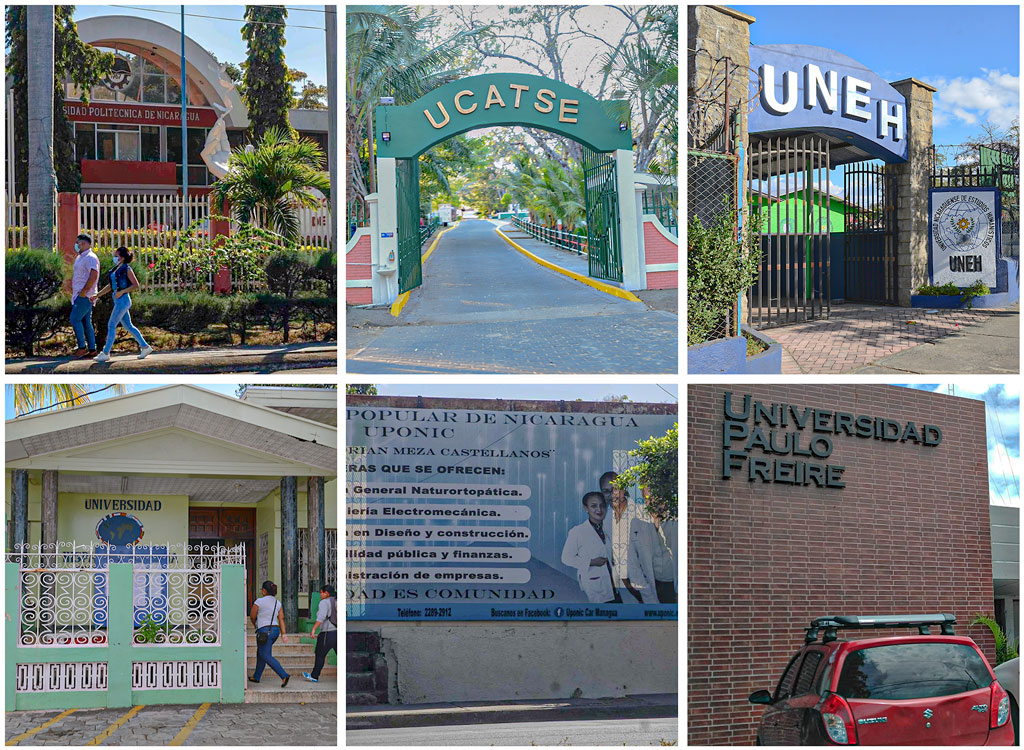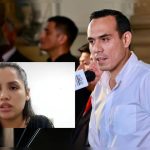To the students of the six universities canceled and confiscated by the Daniel Ortega regime, no academic authority has clearly explained what will happen to their future. Feelings such as uncertainty, anguish and frustration have overwhelmed them since February 2, when their houses of study were canceled and with the passing of days they have been accumulating questions that until now no one knows how to answer. Nor are the students of the Uhispam, canceled two months earlier, clear about the changes imposed.
In Nicaragua there is also no official registry of registration of the six universities confiscatedbut an estimate made by CONFIDENTIAL —based on journalistic reports and statements by officials of those houses of study— indicates that more than 18,000 students are affected in various departments of the country.
The data collected indicates that the Polytechnic University of Nicaragua (Upoli) housed 8,500 students, followed by the Catholic University of the Dry Tropics (Ucatse) with 3200, the Pablo Freire University (UPF) with 1,200 and the Nicaraguan University of Humanistic Studies (Uneh) also with 1,200. Meanwhile, the Hispano-American University (Uhispam), canceled in December, had 3,980. Nicaraguan Popular University (Uponic) there are no records, although some report 2,000 students, with which the number of affected students could rise to 20,000.
“Daniela”, a university student with a scholarship at Upoli, now fears losing the aid that allowed her to study. She recounts that “he same day” that the legal status of the university was cancelled, she and several of her classmates went to collect their grades, but the campus was taken over by the Police and the National Union of Nicaraguan Students (UNEN), the arm repressive of the Sandinista Front in the universities.
“They haven’t told us. not even how the tariffs are going to be, nor if they are going to be the same teachers, which I very much doubt”, comments “Daniela”. “I have a scholarship and I doubt very much that I can have it again, because last year they gave me the scholarship I was quiet, I couldn’t say anything all the time and now I very much doubt that they will give it to me because those from UNEN already know who I am,” she adds. .
Public universities do not have the capacity
The concern of the students is not for less, since even the president of the National Council of Universities (CNU), Ramona Rodríguez, has admitted that: “the public universities do not have the capacity to capture the demand of all high school graduates” in the country and “private universities were complementary”.
In some statements that Rodríguez gave to the state channel 6 said only the National Autonomous University of Nicaragua (UNAN-Managua), which is the largest in the country, this year had a pre-registration of 30000 students, but only 14,000 will be admitted. Therefore, private universities “are a complement,” he insisted.
After the cancellation and occupation of the six private universities, the National Assembly created the state ones: Francisco Luis Espinoza Pineda, National Polytechnic University (UNT) and the Ricardo Morales Avilés National Multidisciplinary University. With what she tried to give “an impression of legality” to what happened, that “it is nothing more than a confiscation”, explains the lawyer Martha Patricia Molina.
However, the president of the CNU tries to show the transfer of private universities to the State as if it were something good: “We are in function of reducing those monthly payments of the students, that there is a payment -because in fact it is required—to be able to guarantee (the) sustainability of the institutions, but that it be a payment that is in correspondence with the economic conditions of our country”.
Rodríguez also promised a budget allocation to these three institutions, which will come from the 6% of the General Budget of the Republic that by law corresponds to the universities and assured that in the case of the college Francisco Luis Espinoza Pineda and the National Polytechnic University (UNT) will continue with the study plans that the canceled Ucatse and Upoli had.
In the case of the Multidisciplinary University, where the legislators brought together four canceled universities, the president of the CNU said that at least this year “the study plans” of the different universities will be maintained and from 2023 they will begin to unify the plans.
Uncertainty among the student community
The stateization of private universities represents -further- another blow to students who in 2018 were expelled from public universities for protesting against the ruling regime and demanding university autonomy, and who had restarted their studies.
The student Neyma Hernández recounts that among her classmates “there is a lot of uncertainty and a lot of fear because of everything that has happened” with their houses of study. “We don’t feel like the university was stolen from us, because the university, in addition to the owners, also belonged to the student population”, he stresses.
Also, says Neyma, “there is fear that our grades will be erased, fear that they will not give us the grades, fear that they will take away our scholarship”, as happened in 2018.
Neyma, like her colleagues, is concerned “not knowing what is going to happen, not knowing which university to go to, because if we go to the UCA (Central American University) any day now, (regime officials) will come. and they inform them that their facilities were stolen”.
Segregation of public universities
For the academic, Ernesto Medina, the regime’s decision to nationalize private universities is —besides—to “institutionalization of a great social inequity”, because now in Nicaragua there will be “students in public universities who pay and others who do not pay”.
The CNU “has neither the technical capacity, nor the academic capacity, nor the legal capacity. The law does not give the CNU any powers like the ones that are being taken… What we know in Nicaragua as the CNU is an office on the hill of Tiscapa (in Managua), which is a technical secretariat where there are employees of the Council of Rectors who they have a simply administrative function”, underlined Medina.
In addition, the creation of the three new universities was not done in accordance with previously established laws. “Are we going to have two types of autonomy?” questions the academic.

















